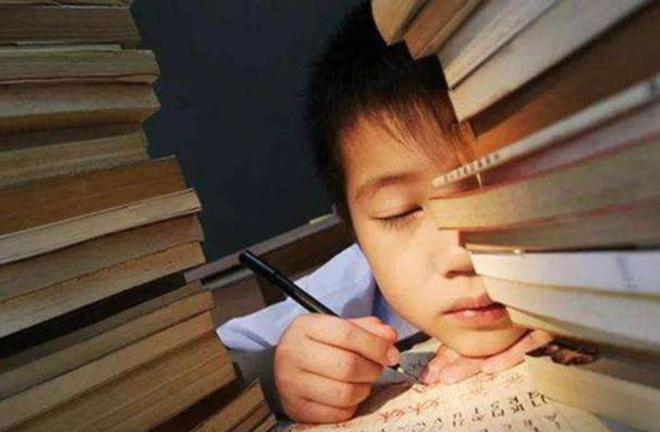Freeing primary and secondary school students from training agencies

Students’ extracurricular time is offset by a lot of study loads. Photo: FILE
China will “develop more equitable and higher quality education,” according to the 2019 Government Work Report. Chen Zhongyi, a member of the CPPCC National Committee and director of the Institute of Foreign Literature at the Chinese Academy of Social Sciences, has been concerned about how to reduce the workloads of primary and secondary school students, especially how to untether them from private training agencies so they can be more devoted to campus life.
Talking about why he has dedicated himself to this topic, Chen said that in 2018, the Ministry of Education shut down a batch of extra-curricular organizations for primary and secondary school students as a response to public advocacy and the central government’s requirement for reform. These organizations provided poor quality education and caused serious public repercussions. Such measures have received applause from society. Many large-scale training centers claiming excellent qualifications, however, still exist and continue to impose extra workloads on students while schools are striving to reduce academic pressure. Therefore, Chen came up with this proposal.
In order to relieve the academic pressure on primary and secondary school students and promote quality education, China has introduced multiple policies on schoolwork reduction over the past two decades. In 2011, the study load reduction was officially included into the Government Work Report. The reduction to the in-school workload was soon effective, but extracurricular training agencies went viral, especially in large and medium cities. These institutions attracted students’ parents with mottos such as “winning at the starting line,” “pushing excellent training,” “targeted teaching” and “early cultivation.” Such training tends to reach younger kids. This phenomenon cannot be ignored, Chen said.
It takes ten years for a sapling to grow into a tree, while a hundred years for a country to cultivate talent. Education is the bedrock of the great rejuvenation of the Chinese nation and the long-term stability of the country. First of all, quality education must develop students’ qualities associated with morality, intelligence, sports and aesthetics. Primary and secondary schools shouldn’t consider exam scores as the sole measurement or fail to realize that haste makes waste. They shouldn’t push an exam-oriented educational mechanism. Quality exams, however, don’t mean that students will have a lot of free time in schools, Chen said.
At present, primary and secondary schools finish classes early in the afternoon, assign no homework and don’t rate and rank their performances, so primary and secondary school students and their parents have been seduced by various private training agencies and their hungry marketing. Students’ extracurricular time is offset by a medley of training classes. Second, parents handle multiple pressures such as economic situation and time management as well as physical and psychological conditions. With a solid belief that “no advancement means retreat,” they spend all their energy taking their children to training agencies. Some parents even take advantage of their social networks in order to get their children in the back door, resulting in cases of rent-seeking and corruption, Chen said, adding that most private training agencies have no intention to serve children and help them grow healthily and study progressively. Therefore, measures are needed to bring primary and secondary school students back to schools and to help them develop in an all-round way.
To achieve the goal, Chen suggested extending the students’ school time and allowing them to finish their homework at school. It is also appropriate to prepare recreational activities, sports and other classes, so that parents can pick up the students after work. Also, quality education can’t be interpreted as fewer exams, no homework and early dismissal. A large number of current extracurricular training centers, however, haven’t been required to teach unified lessons or been properly supervised.
Therefore, it is imperative to ban private training agencies. Examination and evaluation results should account for a bigger proportion in primary and secondary education. School education and fair competition do not contradict, but test-oriented education and score-based evaluation are harmful. In a sense, fair and reasonable competition is itself a crucial part of quality education. This mechanism can’t be handed over to the training centers.
Also, Chen suggested it is urgent to launch policies that allow all students to enroll in secondary schools in their neighborhood. Similar policies have been imposed on primary schools. Teaching resources should be allocated in a more balanced way. Meanwhile, guidance for the senior high school entrance exam and the college entrance exam should take the primary and secondary school curriculum as a reference. Students will be encouraged to read more, especially original texts, and develop skills based on their hobbies. Schools need to cancel or reduce various forms of exams and selection mechanisms that are irrelevant to in-school study.
